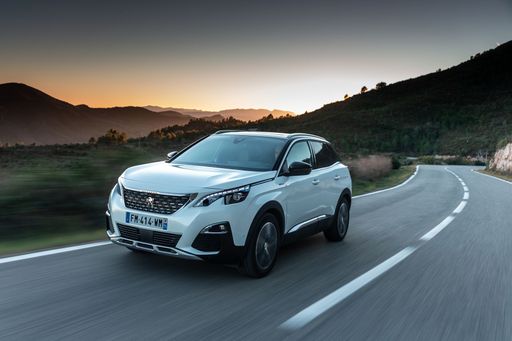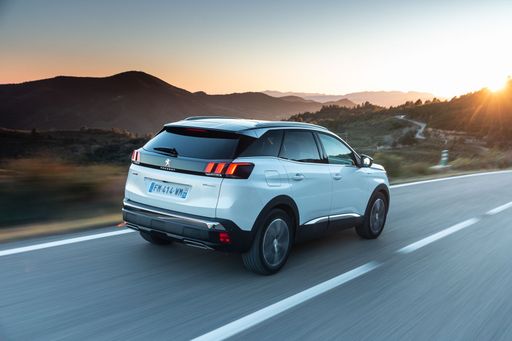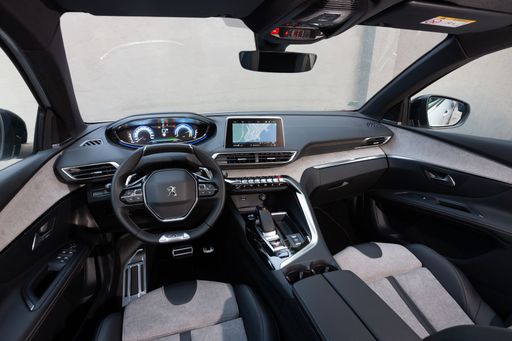Peugeot 3008 vs Toyota Prius - Differences and prices compared
Compare performance (325 HP vs 223 HP), boot space and price (35100 £ vs 39400 £ ) at a glance. Find out which car is the better choice for you – Peugeot 3008 or Toyota Prius?
Costs and Efficiency:
Price and efficiency are key factors when choosing a car – and this is often where the real differences emerge.
Peugeot 3008 has a to a small extent advantage in terms of price – it starts at 35100 £ , while the Toyota Prius costs 39400 £ . That’s a price difference of around 4278 £.
Fuel consumption also shows a difference: Toyota Prius manages with 0.50 L and is therefore convincingly more efficient than the Peugeot 3008 with 2.40 L. The difference is about 1.90 L per 100 km.
As for electric range, the Peugeot 3008 performs decisively better – achieving up to 698 km, about 612 km more than the Toyota Prius.
Engine and Performance:
Under the bonnet, it becomes clear which model is tuned for sportiness and which one takes the lead when you hit the accelerator.
When it comes to engine power, the Peugeot 3008 has a distinct edge – offering 325 HP compared to 223 HP. That’s roughly 102 HP more horsepower.
In acceleration from 0 to 100 km/h, the Peugeot 3008 is somewhat quicker – completing the sprint in 6 s, while the Toyota Prius takes 6.80 s. That’s about 0.80 s faster.
In terms of top speed, the Peugeot 3008 performs slightly better – reaching 220 km/h, while the Toyota Prius tops out at 177 km/h. The difference is around 43 km/h.
Space and Everyday Use:
Whether family car or daily driver – which one offers more room, flexibility and comfort?
Both vehicles offer seating for 5 people.
In curb weight, Toyota Prius is hardly perceptible lighter – 1620 kg compared to 1648 kg. The difference is around 28 kg.
In terms of boot space, the Peugeot 3008 offers decisively more room – 520 L compared to 284 L. That’s a difference of about 236 L.
When it comes to payload, Peugeot 3008 to a small extent takes the win – 467 kg compared to 375 kg. That’s a difference of about 92 kg.
Who wins the race in the data check?
The Toyota Prius is barely ahead in the objective data comparison.
This result only shows which model scores more points on paper – not which of the two cars feels right for you.
Costs and Consumption
View detailed analysis
Engine and Performance
View detailed analysis
Dimensions and Body
View detailed analysis

Toyota Prius
Peugeot 3008
The Peugeot 3008 blends bold French styling with a surprisingly grown-up interior that makes even dull commutes feel a little bit special. Practical enough for family life yet lively to drive, it’s a clever all‑rounder that stands out from the crossover crowd without shouting for attention.
details



Toyota Prius
The Prius glides through traffic like a wise commuter's secret weapon, balancing miserly running costs with an unflappable sense of reliability. It's not a thrill seeker, but its roomy cabin, sensible packaging and low-stress driving personality make it a brilliant choice for buyers who value peace of mind over pulse-raising performance.
details



Costs and Consumption |
|
|---|---|
|
Price
35100 - 52000 £
|
Price
39400 - 45800 £
|
|
Consumption L/100km
2.4 - 5.4 L
|
Consumption L/100km
0.5 - 0.7 L
|
|
Consumption kWh/100km
16.9 - 17.6 kWh
|
Consumption kWh/100km
-
|
|
Electric Range
81 - 698 km
|
Electric Range
72 - 86 km
|
|
Battery Capacity
0.4 - 96.9 kWh
|
Battery Capacity
-
|
|
co2
0 - 121 g/km
|
co2
12 - 17 g/km
|
|
Fuel tank capacity
55 L
|
Fuel tank capacity
40 L
|
Dimensions and Body |
|
|---|---|
|
Body Type
SUV
|
Body Type
Hatchback
|
|
Seats
5
|
Seats
5
|
|
Doors
5
|
Doors
5
|
|
Curb weight
1648 - 2266 kg
|
Curb weight
1620 - 1630 kg
|
|
Trunk capacity
470 - 520 L
|
Trunk capacity
284 L
|
|
Length
4542 mm
|
Length
4599 mm
|
|
Width
1895 mm
|
Width
1782 mm
|
|
Height
1641 mm
|
Height
1470 mm
|
|
Max trunk capacity
1430 - 1480 L
|
Max trunk capacity
-
|
|
Payload
432 - 467 kg
|
Payload
365 - 375 kg
|
Engine and Performance |
|
|---|---|
|
Engine Type
Electric, Petrol MHEV, Plugin Hybrid
|
Engine Type
Plugin Hybrid
|
|
Transmission
Automatic
|
Transmission
Automatic
|
|
Transmission Detail
Reduction Gearbox, Dual-Clutch Automatic
|
Transmission Detail
CVT
|
|
Drive Type
Front-Wheel Drive, All-Wheel Drive
|
Drive Type
Front-Wheel Drive
|
|
Power HP
145 - 325 HP
|
Power HP
223 HP
|
|
Acceleration 0-100km/h
6 - 10.2 s
|
Acceleration 0-100km/h
6.80 s
|
|
Max Speed
170 - 220 km/h
|
Max Speed
177 km/h
|
|
Torque
230 - 511 Nm
|
Torque
-
|
|
Number of Cylinders
3 - 4
|
Number of Cylinders
4
|
|
Power kW
107 - 239 kW
|
Power kW
164 kW
|
|
Engine capacity
1199 - 1598 cm3
|
Engine capacity
1998 cm3
|
General |
|
|---|---|
|
Model Year
2024 - 2025
|
Model Year
2023
|
|
CO2 Efficiency Class
A, D, B
|
CO2 Efficiency Class
B
|
|
Brand
Peugeot
|
Brand
Toyota
|
What drive types are available for the Peugeot 3008?
The Peugeot 3008 is offered with Front-Wheel Drive or All-Wheel Drive.
